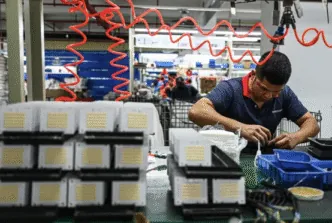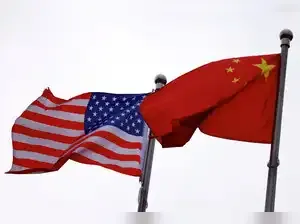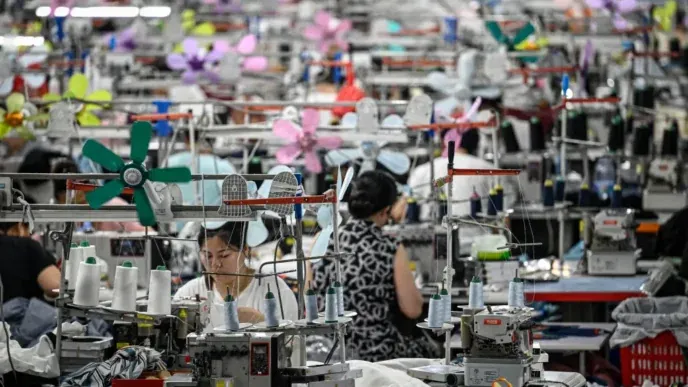China has accused the U.S. of misusing tariffs and cautioned other nations not to strike economic deals with Washington that would harm Chinese interests, intensifying tensions in the ongoing trade dispute between the world’s two largest economies.
China’s Commerce Ministry declared it would “firmly oppose” any actions taken at its expense and promised “resolute and reciprocal” countermeasures.
The warning came after a Bloomberg report claimed the Trump administration plans to pressure countries seeking U.S. tariff exemptions to reduce trade with China, even threatening monetary penalties.
President Trump recently paused sweeping tariffs for several countries—except China. The White House imposed the highest tariffs on Chinese imports, pushing rates up to 145%. Beijing retaliated with 125% tariffs on U.S. goods, escalating a tit-for-tat trade standoff. China has since said it won’t raise those duties further.
“The United States has abused tariffs on all trading partners under the banner of so-called ‘equivalence,’ while also forcing all parties to start so-called ‘reciprocal tariffs’ negotiations,” a ministry spokesperson stated.
The ministry emphasized China’s readiness to defend its rights and expressed a desire to build solidarity with other global partners.
Bo Zhengyuan, partner at China-based policy consultancy Plenum, noted:
“The fact is, nobody wants to pick a side. Countries highly dependent on China for investment, infrastructure, tech, and consumption—especially in Southeast Asia—are unlikely to bow to U.S. demands.”
In a bold diplomatic step, China plans to convene an informal U.N. Security Council meeting this week to accuse Washington of using tariffs to bully other nations and undermine global peace and development.
U.S. Trade Representative Jamieson Greer said nearly 50 nations have contacted him to discuss the latest tariffs. Since then, various bilateral talks have emerged: Japan may increase soybean and rice imports from the U.S., while Indonesia considers shifting food and commodity orders away from other suppliers in favor of America.
Caught in the Crossfire
Trump’s aggressive tariff strategy has rattled global markets, with fears rising that widespread trade disruptions could tip the world economy into recession.
Despite the latest comments from China’s commerce ministry, Chinese stocks edged up on Monday, though investors remain wary due to slower growth prospects.
In parallel, the Trump administration has taken steps to restrict China’s progress in critical industries. It recently imposed port fees on China-made vessels to weaken Beijing’s grip on global shipbuilding. AI chip leader Nvidia announced a $5.5 billion charge last week, citing export restrictions on AI chips destined for China.
Meanwhile, Chinese President Xi Jinping has been rallying support across Southeast Asia, urging regional partners to reject unilateral trade pressure and stand against economic coercion.
“There are no winners in trade wars and tariff wars,” Xi wrote in a Vietnamese publication, pointedly avoiding direct mention of the U.S.
As tensions mount, the stakes remain high for Southeast Asian nations heavily invested in trade with both giants. ASEAN, China’s top trading partner, saw $234 billion in trade with Beijing in Q1 2025, while its total trade with the U.S. reached $476.8 billion in 2024.
Economic ministers from Thailand and Indonesia are currently in the U.S. for trade discussions, with Malaysia expected to join them. These countries are among six in the region hit with steep tariffs—ranging from 32% to 49%—which threaten the economic gains many have enjoyed as a result of earlier U.S.-China trade shifts.













